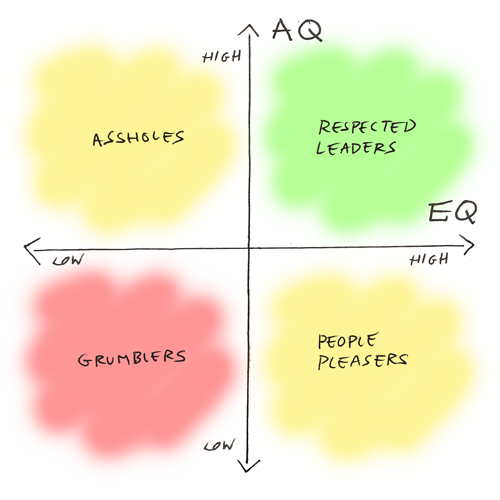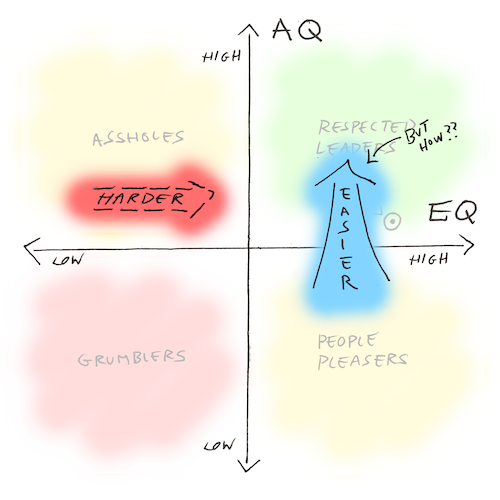How can you summon the courage to explain what makes the other person uncomfortable?
The Translation Bureau is a subordinate translation team, focusing on science and technology, business, workplace, life and other fields, focusing on introducing foreign new technologies, new perspectives, and new trends.
Editor’s note: In work and life, there are always moments when we have to say something that makes the other person uncomfortable. People who can navigate this type of conversation are also called assertiveness. Such a person is calm, calm, and sensible, able to discuss matters in a dialogue, argue with reason, be straightforward, and not be bothered by emotions. In this article, the author describes his own understanding of this quality and the whole process of flying to New York for a week to train himself to improve his self-confidence. The following is the theoretical part of this article. The author of this article is Daniel Shiner, the original title is “Finding My Fighting Words: How I Learned to Have Uncomfortable Conversations”.
Image from Getty Images|MirageC
I am sitting in a coffee shop in Manhattan, ready to become the “least popular person” in the room. First, I’m going to disturb the man sitting in the corner reading quietly, then I will walk to the counter and ask the people in the line if they want me to jump in. But before doing all this, I have to lie down on the coffee shop floor with my eyes open and count from 1 to 20. I know that all my actions will obviously make people in the cafe uncomfortable, but I still choose to spend the last day of my vacation in this way.
Here are the reasons:
The word “Emotional Intelligence” (EQ) is what I have heard from my childhood. In the mid-1990s, the psychologist Daniel·Gorman (Daniel Goleman) first proposed the concept of emotional intelligence in his best-selling book. If IQ is used to test people’s ability to reason and memory, then emotional intelligence is used to test the ability to understand others (including listening and sympathy), self The ability to adjust and appreciate.
My mother is an elementary school principal. She respects intelligence and hard work, but she also values emotional intelligence. She believes that after graduation, it is EQ that distinguishes good students from excellent students in the general sense. The latter can truly transform the knowledge and talents learned into valuable existence through high EQ, and make it have a good impact. . Driven by this kind of thinking, she strives to convey relevant concepts to my sister and me in life, such as regularly organizing table talks about compassion, communication and patience.
But when I started my first job after graduation-working as an employee in a tech start-up company-I found that there was something I was missing. Of course, emotional intelligence is still important, especially when attending an interview or joining a small group. But I found that colleagues have another quality that can make their words more influential. This quality has nothing to do with the “listening” or “empathy” we admire, and even a bit “anti-emotional intelligence”: They don’t seek to make others feel comfortable, but have the courage to say things that make others uncomfortable< /strong>.
This quality is called assertiveness. Psychologists classify this quality of expressing yourself firmly, directly, and calmly between “passive” and “aggressive”. In practice, I find that people with strong self-confidence (AQ) can easily manage conversations that make themselves and the other party uncomfortable.
Confident people—that is, people with high AQ—will directly ask for what they want, or reject what they don’t want, provide constructive feedback to others, and are not afraid of face-to-face confrontation And argue. Although people in our company have different personalities (some are introverted, some are extroverted), everyone has this confidence.
Actually, I workThe longer I got there, I found that everyone I met can be classified into the “AQ/EQ” number line.
I categorize the people I meet at work into four categories|Picture from Medium
People with low EQ and AQ are called “Grumblers”. These people find it difficult to deal with, speak for themselves, and like to get along with others through gossip and attacks. It is this kind of people who have created a “toxic” social environment, and they have obvious limitations in terms of personal and professional development.
People with high EQ and low AQ are called “People Pleasers.” These people like teamwork, but they are afraid of conflict. Like complainers, they are also limited in their development process because they cannot muster the courage to engage in difficult and uncomfortable conversations. These people are easily overlooked in the workplace and are popular among friends and family.
People with low EQ and high AQ are what we call “Assholes”. Such people ignore social politeness, are outspoken, and don’t worry about making others feel uncomfortable at all. Their self-confidence characteristics sometimes overshadow the shortcomings of low emotional intelligence, and this self-confidence will send them to a higher position. But this kind of person will eventually touch the ceiling-colleagues will criticize them behind their backs, saying that they are difficult to get along with, and eventually they will take some professional opportunities for this.
The last type is people with high EQ and AQ. We call them “Respected Leaders”. These people are likable and suitable for working together. But they know when to say no, and they know to provide constructive feedback in time-when they refuse or give feedback, you will still feel respected. This is the quality that most of us want to have.
In contrast to myself, I rarely become a person with a high AQ. Long-term EQ training made me too sensitive to the emotions of those around me, and I began to fear that my words and deeds would make others unhappy. I did not deliberately avoid conflict, but whenever I think of having an uncomfortable conversation, my thinking ability is limited. I feel extremely frustrated about this. If I want to participate in heated debates or provide negative feedback, I will become very melancholy and even have difficulty organizing my own language. When this uncomfortable conversation is over, I will talk to myselfQuestions about communication skills, it is difficult to extract from the negative emotions of others. Looking at those CEOs again, it seems that no matter what the situation is, they can maintain a clear mind without being affected.
One more thing made me realize how low my AQ is. When I was in my 20s, I once forgot the fact that I was very introverted and desperately wanted to make friends. The consequence is that my social anxiety is getting worse (especially when facing strangers). This kind of anxiety is the negative effect of high emotional intelligence: at exhibitions, at work or in social situations, I will feel pain because of empathy. I instinctively felt that my words or suggestions made the other person uncomfortable, imagined the other’s reaction, and felt anxious because of it. This even became my “dirty little secret”: I dared to speak at a meeting of hundreds of people, but I dared not approach a stranger.
Low AQ can cause many problems, whether it is business negotiations or daily bargaining, whether it is communicating with couples or communicating with colleagues. In order to enable myself to manage uncomfortable conversations, I began to look for ways to improve AQ.
As we all know, EQ is difficult to improve, because social activities are like extremely complex symphony performances. From words to thoughts, from actions to eyes, you need to work in many ways to truly learn. And AQ—that is, boosting self-confidence—is more like using a single instrument instead of just an entire band, so it’s relatively easy to improve.
Research shows that AQ is easier to improve than EQ, but it’s not easy to find exercise opportunities|Image from Medium
The problem is that every skill requires continuous practice. K. Anders Ericsson, the founder of performance psychology, even put forward the view that “to master a skill requires at least 10,000 hours of practice”. This kind of exercise requires us to step out of our comfort zone, set goals, concentrate on continuous practice, and set higher standards after reaching the goal and start a new round of practice. A person who learns to play tennis with a backhand will not be satisfied with “playing with friends occasionally to relax.” Instead, he will choose to set goals, install a serving machine, learn backhand operations, then concentrate on swinging the racket, and then continue according to the actual effect. Adjust yourself and summarize your skills.
But in terms of improving AQ, we couldn’t find a “serving machine” to practice conversation with us. We can pull family and friends to practice, but once we meet a stranger, the conversation is still very difficult. What’s harder is when theseWhen a dialogue suddenly appears, we rarely have time to prepare, and we rarely have time to remind ourselves to practice dialogue skills during the dialogue, and we rarely reflect afterwards. When I realized this problem, the best phase of my life was gone.
I started to think, can we deliberately create opportunities to practice this skill? Can I create dialogue through role playing based on different dialogue skills requirements? Can I promote this idea and make it a training camp (for everyone to practice a lot in a short time)?
With this in my heart, I flew to New York.
Recommended reading:
-
How do I learn to navigate “uncomfortable conversations” (practice)< /p>
-
How do I learn to navigate “uncomfortable conversations” (reflection)< /p>
Translator: Michiko


